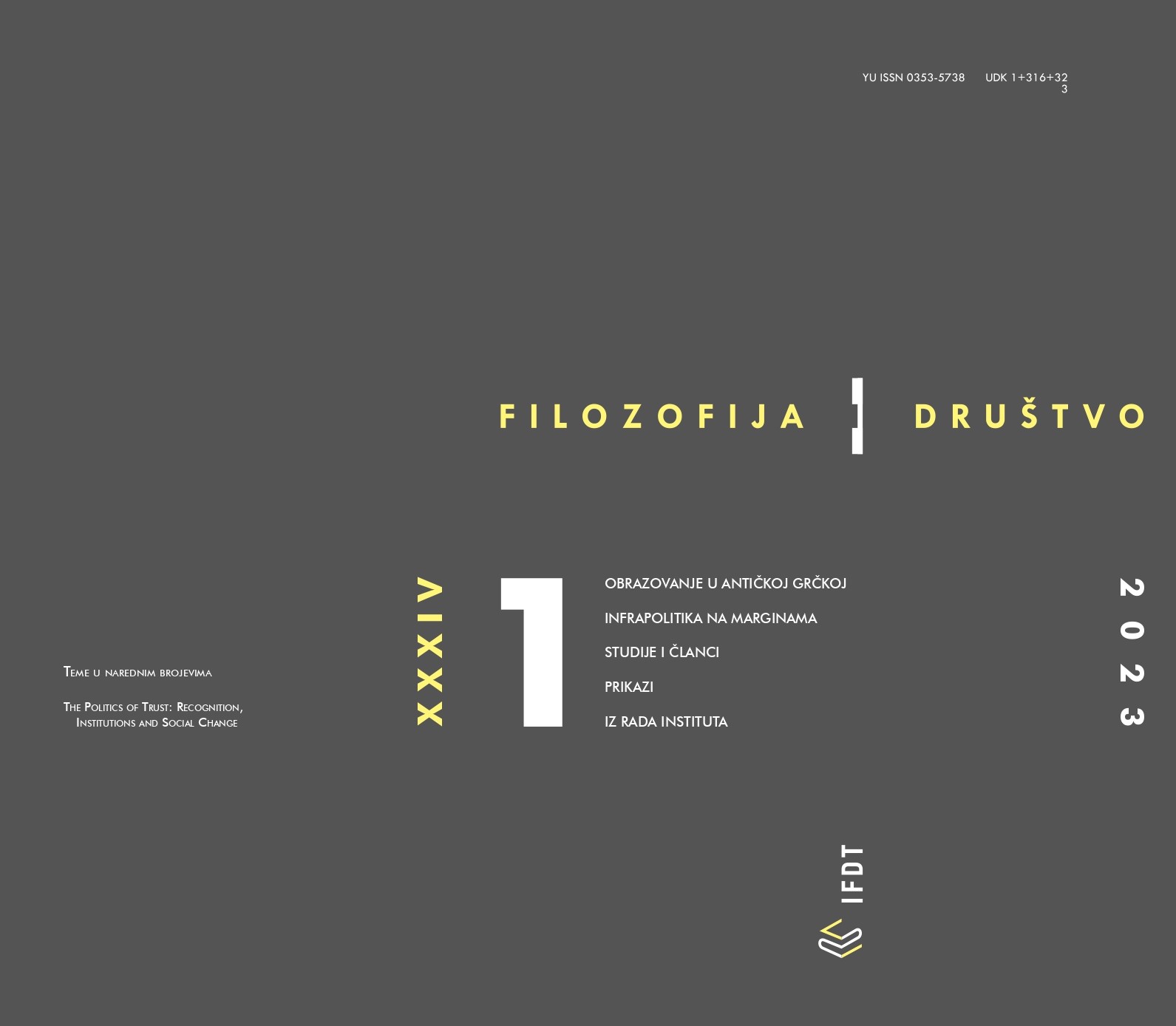THE ROMAN STOICS ON THE EMANCIPATORY POTENTIAL OF THE PHILOSOPHICAL PAIDEIA
THE ROMAN STOICS ON THE EMANCIPATORY POTENTIAL OF THE PHILOSOPHICAL PAIDEIA
Author(s): Tamara PlećašSubject(s): Philosophy, Social Sciences, Education, History of Philosophy, Ancient Philosphy
Published by: Institut za filozofiju i društvenu teoriju
Keywords: Students; Mentors; Emancipation; Educational practices; Seneca; Musonius Rufus; Epictetus; Marcus Aurelius
Summary/Abstract: The idea that learning liberates or that education emancipates is hardly a novelty, and it can be traced to ancient times and Ancient Greek and Roman philosophy. Thus, in this paper, we aim to express that some of the ideas (like the idea that women and men are equally subject to moral virtue because of their rationality) and educational practices (such as those that encourage students to use their voices and reason independently from any authorities) embraced by well-known Roman Stoics did have emancipatory potential. Particularly important was a requirement that philosophy should be lived outside the classrooms.
Journal: Filozofija i društvo
- Issue Year: 34/2023
- Issue No: 1
- Page Range: 59-69
- Page Count: 11
- Language: English

